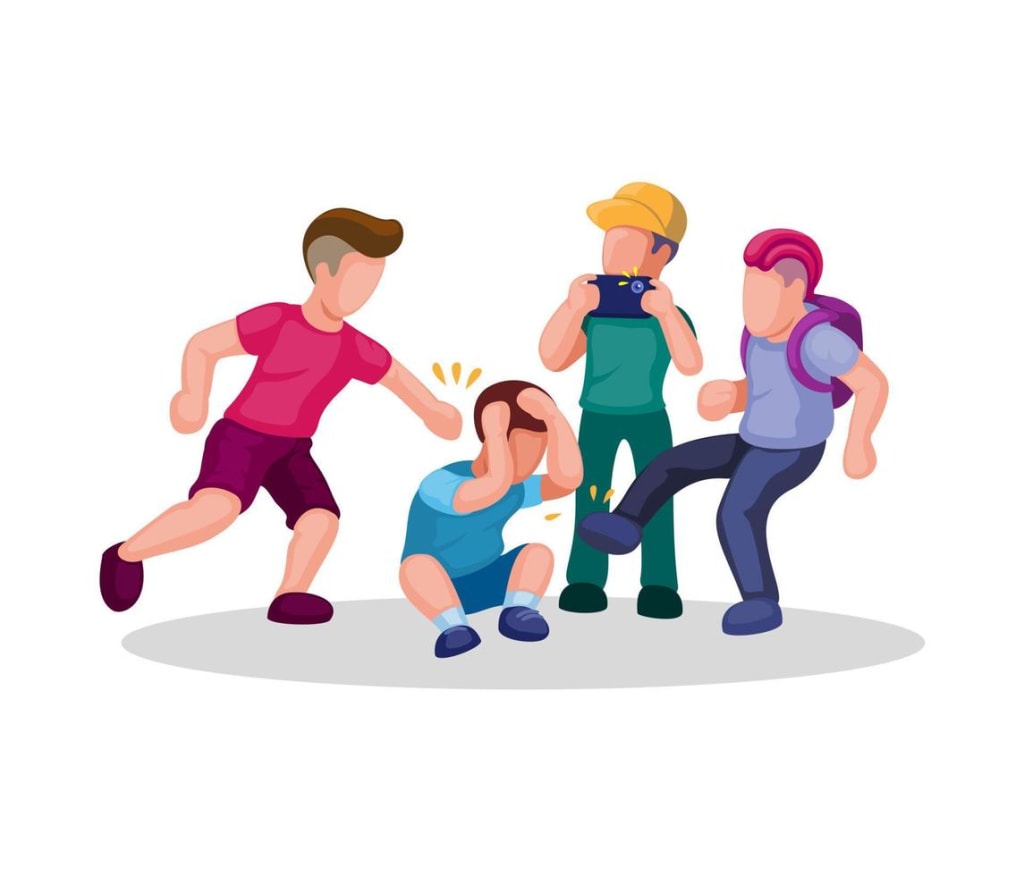
Half of all people experience bullying before they reach the age of 20. Bullying can be incredibly challenging to endure, particularly if we don't understand the mindset of a bully and tend to blame ourselves. If you are a victim of bullying, know that your appearance, hobbies, sexual orientation, or race are not the issues. Let's delve into the true reasons behind why individuals bully others.
Bullies often seek a sense of power over their peers. The simplest way for them to achieve this is by targeting what makes their victims unique and making them feel ashamed of those differences. Consequently, the victim may start to blame themselves, searching for a reason behind the bully's behavior. They might even attempt to change themselves to avoid further bullying, which can adversely affect their mental and physical health.
Research shows that bullies are more likely to have experienced traumatic events within the past five years. Everyone handles stress differently, with some people employing healthier coping mechanisms than others. Many individuals cope with stress in unhealthy ways, such as through substance abuse, violence, or bullying.
Statistically, most bullies are male. Unlike girls, boys are often raised to suppress their feelings and refrain from showing emotion. It's no wonder they struggle with stress, often responding to it in aggressive ways, such as bullying. Additionally, many bullies suffer from low self-esteem. They aim to deflect attention away from themselves by targeting others, desperately trying to avoid negative attention.
It’s also important to note that those who have been abused are more likely to become abusers themselves. Similarly, individuals who have been bullied may become bullies in an attempt to protect themselves. Bullying can act as a defense mechanism, a way for them to feel that by being the aggressor, they can avoid being victimized again.
Bullies often come from violent or neglectful households where they feel rejected by those who should offer them unconditional love. A lack of proper education about hate speech can also contribute to bullying, as can peer pressure and the fear of losing friends.
There is no justification for bullying. Every person of sound mind is accountable for their actions and the consequences that follow. No explanation can erase the scars or the long-lasting psychological harm that victims of bullying endure. However, understanding the origins of bullying and recognizing that bullies are not all-powerful villains but rather broken individuals can help victims avoid self-blame and hold their heads high. Remember, the victims are never the problem.
The trauma inflicted by bullying can leave deep and lasting scars on a person’s psyche. Victims often suffer from anxiety, depression, and low self-esteem long after the bullying has stopped. The psychological damage can be profound, affecting their ability to form healthy relationships and pursue opportunities in their personal and professional lives. Understanding that bullies are often acting out of their own pain does not excuse their behavior but can help victims see that the cruelty they endured was not a reflection of their worth.
Educational programs that address bullying head-on can be incredibly effective. These programs should focus not only on supporting victims but also on rehabilitating bullies. By providing bullies with healthier coping mechanisms and addressing the underlying issues that lead them to bully others, we can break the cycle of violence and create a safer environment for everyone. Schools, communities, and families must work together to foster empathy, resilience, and respect among young people.
Parents play a crucial role in preventing bullying. By fostering open communication with their children and encouraging them to talk about their experiences, parents can help identify and address bullying early on. Teaching children about empathy, kindness, and the impact of their actions on others is vital. Parents should also be role models in demonstrating how to handle stress and conflict in healthy ways.
Peers also have a significant influence on bullying dynamics. Encouraging children and teenagers to stand up for their peers and report bullying can make a substantial difference. When bystanders intervene or show support for victims, it can disrupt the power dynamic that bullies rely on. Building a community where everyone feels responsible for each other’s well-being can diminish the prevalence of bullying.
Social media has added a new dimension to bullying. Cyberbullying can be relentless and pervasive, following victims into their homes and personal lives. It’s essential to teach young people about digital citizenship and the responsible use of technology. Encouraging them to think before they post, to support their peers online, and to report harmful behavior can mitigate the negative impacts of cyberbullying.
Ultimately, addressing bullying requires a multifaceted approach. It involves understanding the root causes of bullying, providing support for victims, rehabilitating bullies, and creating a culture of empathy and respect. By working together, we can reduce the incidence of bullying and help those affected to heal and thrive. Remember, bullying is never the victim's fault, and with the right support and understanding, we can build a world where everyone feels safe and valued.
About the Creator
Enjoyed the story? Support the Creator.
Subscribe for free to receive all their stories in your feed. You could also pledge your support or give them a one-off tip, letting them know you appreciate their work.





Comments
There are no comments for this story
Be the first to respond and start the conversation.